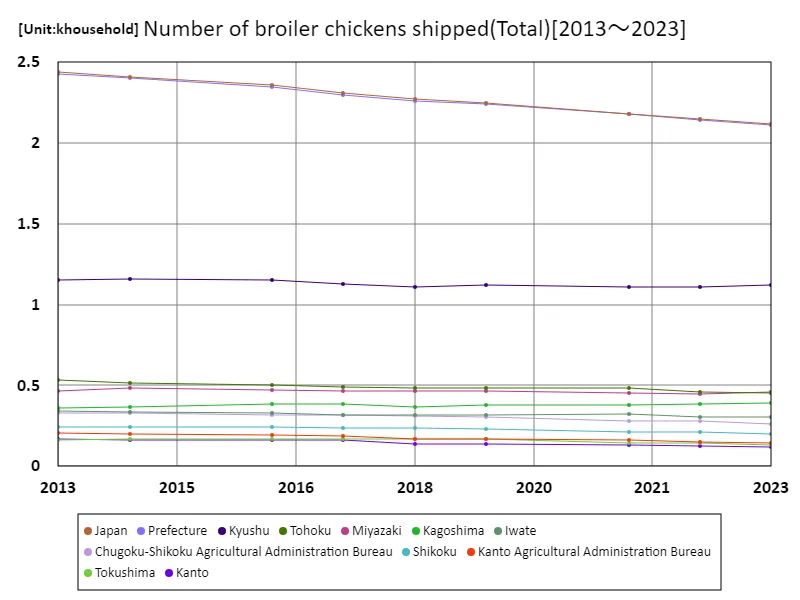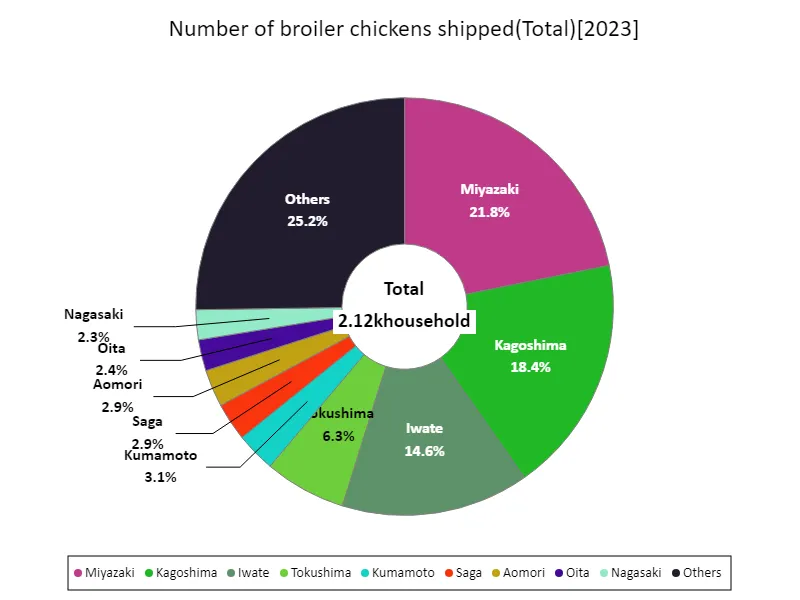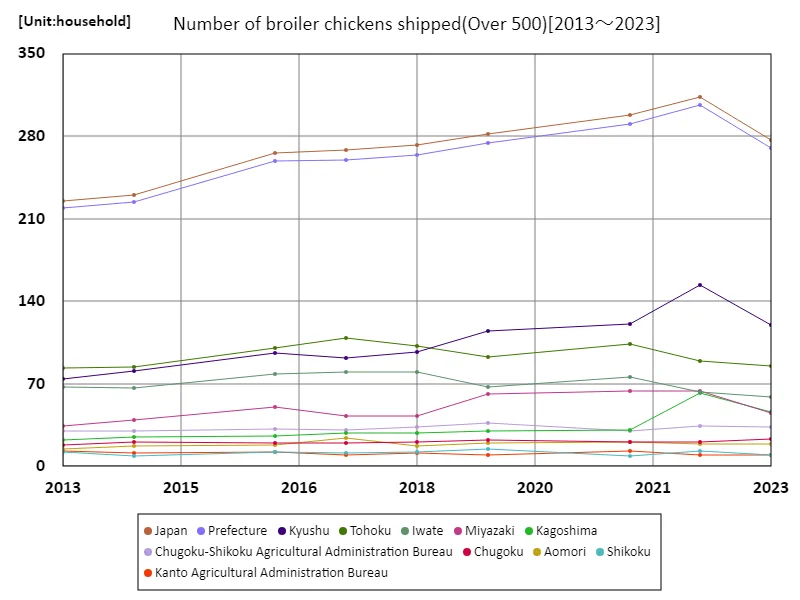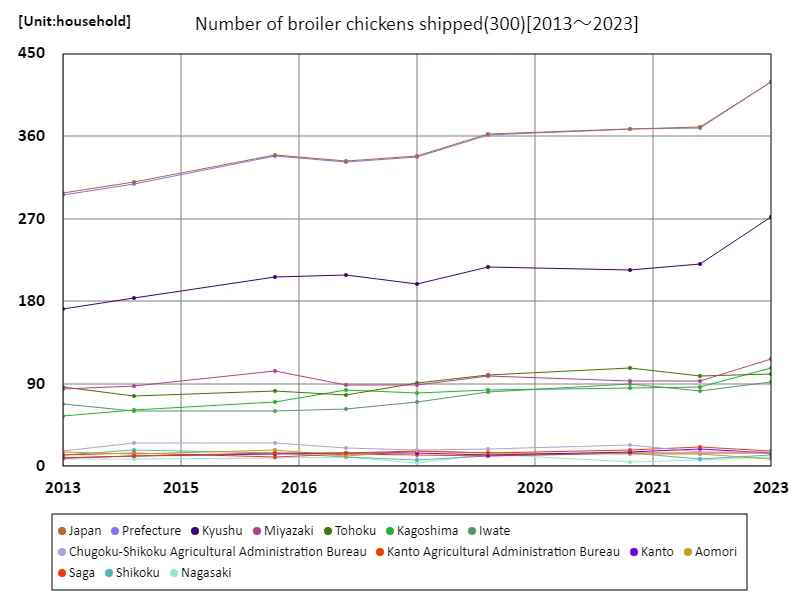Abstract
In Japan’s livestock industry, the number of chickens kept is an important indicator. According to the latest statistics for 2023, the number of chicken-raising households nationwide has reached a maximum of 2,120. This figure is mostly seen in facilities with over 500,000 birds, with sizes between 300,000 and 499,999 birds also being widely seen. Within the livestock industry, chicken farming in particular has been expanding on a large scale, likely due to increasing demand and the pursuit of efficiency. Larger facilities are more efficient in terms of technology and management, contributing to increased production. However, at the same time, small-scale farms still exist, and in some regions chicken coops of a variety of sizes are maintained to suit local characteristics and demand. Statistical data shows that chicken farming is carried out on a variety of scales, suggesting that it contributes to the development of the livestock industry as a whole.
Total number of households
From 2013 to 2023, Japan’s chicken farming has shown a notable decline. In 2013, there were 2,440 farming households with significant chicken populations. By 2023, this number has decreased to 86.9% of the 2013 peak, indicating a contraction in the industry. This trend reflects a consolidation towards larger farms and a reduction in smaller operations. The shift suggests increased efficiency but also highlights challenges such as rising operational costs and changing market demands. Despite the decline, the focus on larger, more productive farms may boost overall industry sustainability.


The maximum is 2.44khousehold[2013] of Japan, and the current value is about 86.9%
Total number of households (prefectures, latest year)
In 2023, Miyazaki prefecture led Japan in chicken farming with a peak of 462 units, maintaining this highest level. This signifies Miyazaki’s robust and resilient poultry industry, which has achieved 100% of its peak capacity. The province’s success highlights its significant role in Japan’s chicken production, characterized by advanced farming practices and strong local infrastructure. As the only region reaching its peak, Miyazaki exemplifies effective industry growth and stability amidst national trends, potentially serving as a model for other regions facing fluctuations in livestock numbers.


The maximum is 462household of Miyazaki, the average is 50.4household, and the total is 2.12khousehold
Total number of households (over 500,000)
In 2013, Japan’s poultry sector saw a peak of 313 farms managing over 500,000 chickens each, with an average of 26.8 such farms across the nation. This total of 1,290 farms highlights a diverse industry landscape with both large-scale and smaller operations. The high peak number reflects significant production capacity concentrated in a few large farms, while the average indicates a broader spread of medium-sized operations. This distribution suggests a trend towards consolidation in larger farms, balancing between industrial efficiency and the maintenance of smaller, more localized poultry businesses.


The maximum is 313household[2022] of Japan, and the current value is about 88.5%
Total number of households (300,000 to 499,999 birds)
In 2013, Japan reported a peak of 419 farming households shipping 300,000 to 499,999 broiler chickens each, setting a national maximum. This high figure indicates a significant concentration of production in mid-sized farms, reflecting a key segment of the poultry industry. The trend shows a robust sector with substantial output, suggesting these farms are crucial in meeting domestic chicken demand. The stability at this peak level points to a well-established balance in production capacity, highlighting the importance of these mid-sized operations in Japan’s overall poultry market.


The maximum is the latest one, 419household of Japan



Comments